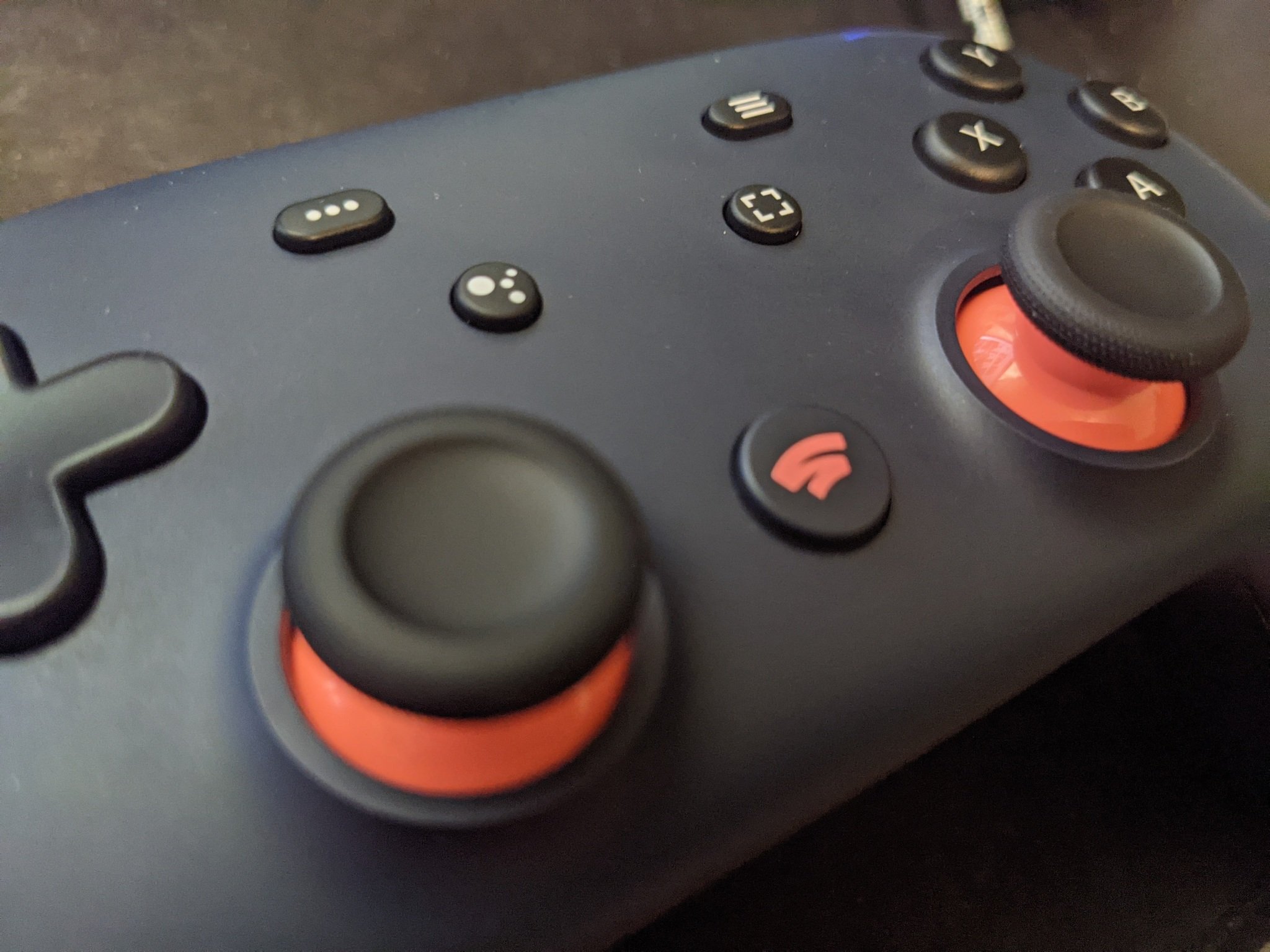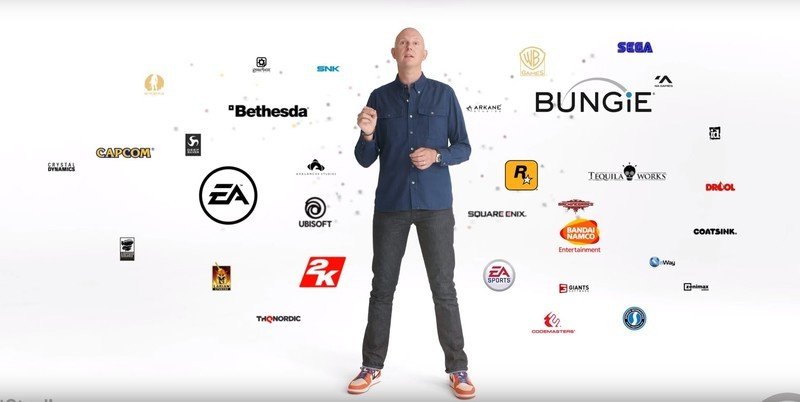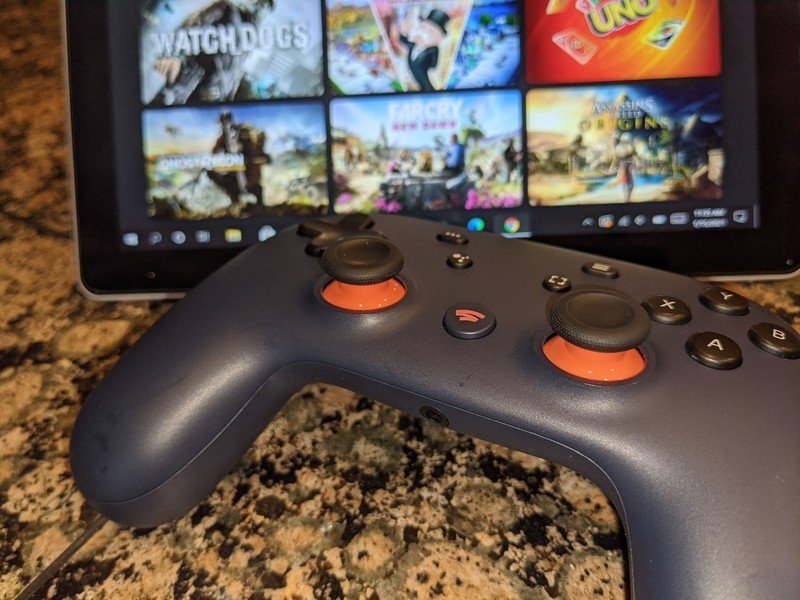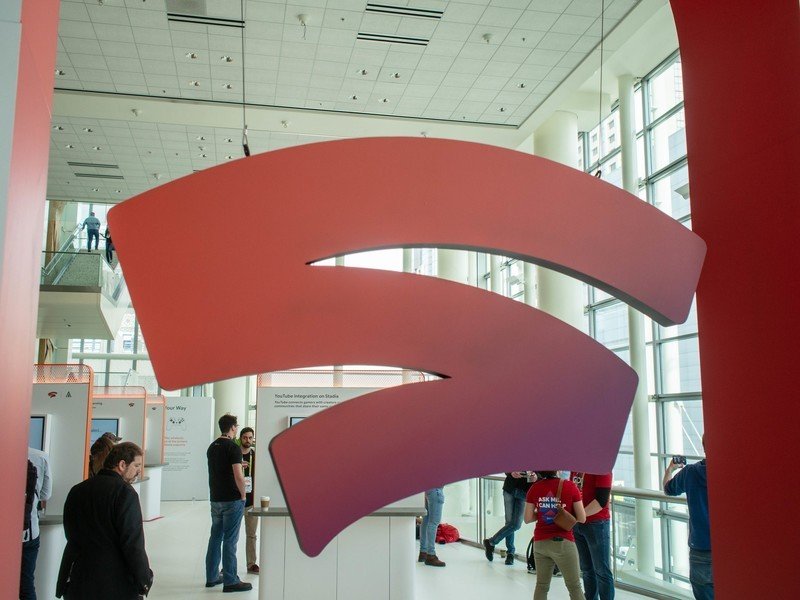It's not the end for Stadia, but Google is sending a terrible message

As it turns out, January 31st, 2021 was not the best day to publish a Stadia re-review that, despite acknowledging flaws, was positive about the future of the platform. Just a mere week ago it felt like Google was primed to take Stadia to the moon and beyond. Years of development work helped make third-party games like Cyberpunk 2077 and Hitman 3 perform brilliantly on the platform. While there still may be a future scenario where Stadia flourishes in the long term, it's beginning to get harder and harder to imagine.
The very next day after my re-review published, Google announced that it is shutting down its internal development and publishing studio, Stadia Games & Entertainment, which was working on unannounced games and of course recently published Outcasters, Submerged: Hidden Depths, and Journey to the Savage Planet. This news also included the departure of game industry veteran Jade Raymond. As it stands, it's unclear which projects she was working on over the last two years.
Winding down Stadia Games & Entertainment

Google could not have timed its announcement of Stadia Games & Entertainment's shutdown any worse if it tried. Not only has the studio hardly put its name on anything that's available for Stadia over the last two years, but it's mostly a mystery what its developers were even working on. Raymond's departure getting buried in a blog post is very odd and makes it hard to feel confident about anything Google does with Stadia going forward.
Maybe Google is just now realizing that it's harder than expected to make games from scratch.
On top of everything else, Journey to the Savage Planet was released as a free Stadia Pro game on the same day the news dropped. Google acquired Typhoon Games over a year ago and shipped a game with Stadia-exclusive content and features the same day the whole division was shuttered. That's awkward.
I can't imagine what those developers are going through if they just found out the same day that they released the latest version of their game that they were, in effect, out of a job. Thankfully, Google claims that it will assist the majority of these 150 displaced developers with finding other work within the company.
The best Stadia games are all mostly third-party games, so maybe after 2-3 years of effort and money Google is just now realizing that it's harder than expected to make games from scratch. It's the same realization that Amazon seems to be slowly coming to terms with, based on the recent Bloomberg expose on Amazon Game Studios.
Software sells hardware

History can be a great teacher and a great enemy. Everyone knows software sells hardware because more times than not, if a platform has better games it's going to sell better. The PS4 vs the Xbox One is a great example of that fact. Due to the quality and volume of exclusive titles, the PS4 was a resounding success last generation and now Microsoft is doubling down on exclusives with studio acquisitions and its aggressive Game Pass subscription offering.
Be an expert in 5 minutes
Get the latest news from Android Central, your trusted companion in the world of Android
But, what happens when you don't really have any hardware to sell in the traditional sense? I'm sure Google would love for you to buy a Stadia controller and/or Chromecast device, but it's not required to play games on Stadia. And yet, despite massively lowering the barrier to entry by removing the hardware, Google is still facing an enormous uphill battle entirely against public sentiment.
Google is still facing an enormous uphill battle entirely against public sentiment.
There's the lingering stigma of cloud-based gaming ghosts of the past, such as axed streaming service OnLive, which hurts the reputation of the entire format. All too often users are quick to dismiss Stadia simply because it's a cloud platform. Even with willing cloud gamers, Google faces plenty of direct competition, with Amazon Luna versus Google Stadia representing their biggest rival. Now of course there's the fear that Google will eventually kill Stadia, which feels even more impending than before with this most recent news.
All that Google can do is go heads down and continue delivering games that people want to play and defying expectations. Each success is a double-edged sword. Despite being a Stadia Founder that was "in" on the platform since before day one, I'm still blown away every time I boot up a new game on Stadia and start playing instantly without problems. I put over 40 hours into Cyberpunk 2077 without ever installing the game on anything. I've played Madden NFL 21 on my phone and I've battled gods across Assassin's Creed and Immortal Fenyx Rising. Red Dead Redemption 2, one of the biggest and most demanding games in recent years, plays flawlessly on Stadia and it still feels like magic.
The "wow" factor is there and it absolutely works, but every time a new game comes out the first question is always, "How does it play on Stadia?" not "Is it good?" When someone buys a game on PC or PS5 or Xbox they're not asking themselves whether it will run well (okay, maybe sometimes) or whether their internet can handle it. It's going to be a while before those stigmas go away and it will be even longer, more than likely, before the majority of the internet-using population can do away with data caps.
Stadia's uncertain future

Make no mistake: Stadia's future is anything but clear right now. While Phil Harrison, Vice President and GM for Stadia at Google, claims the company has the platform's best interests at heart, it's not easy to believe that at face value. Between the rocky launch, lack of transparency, delayed features, and generally half-hearted support, Stadia already feels like an afterthought in Google's portfolio — just as it's finally starting to feel worth the wait.
I'm just waiting on Google to be as much of a fan of Stadia as I am.
Even without first-party exclusive titles Stadia can still succeed. Timed exclusivity agreements for new third-party games is a great avenue and there are some major benefits to the platform, such as State Share in Hitman and performance stability like we saw with Cyberpunk 2077. If Google can continue to roll out more YouTube integration features, there are lots of avenues to set it apart without the need for in-house developed titles.
I know that if it's given the TLC that Google gives some of its other products and services, Stadia can absolutely thrive. The technology is there, the audience is growing, and the content speaks for itself. I'm just waiting on Google to be as much of a fan of Stadia as I am.

